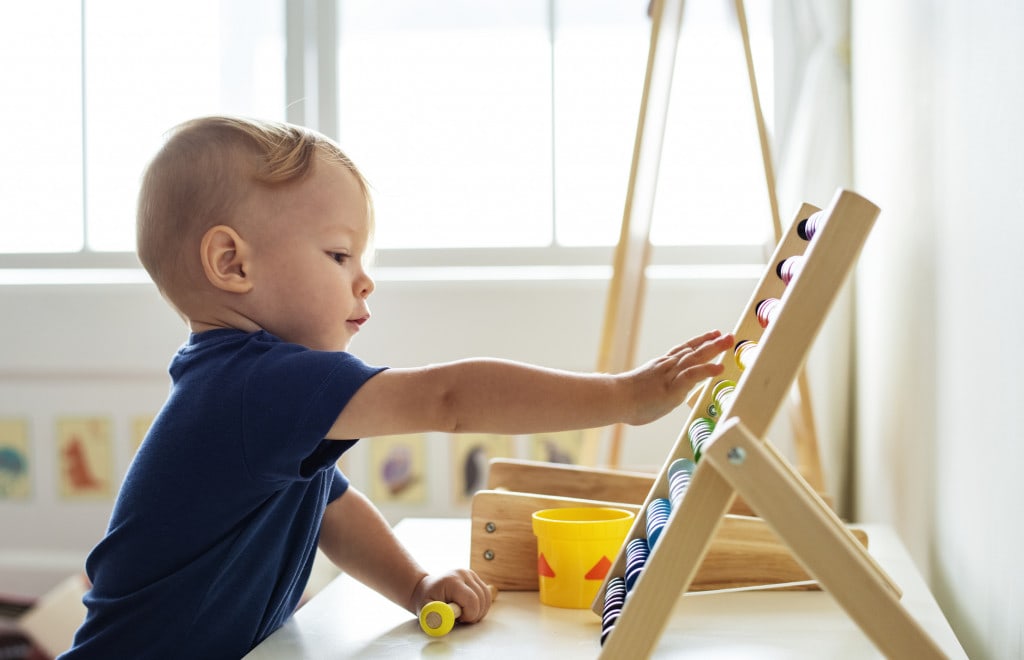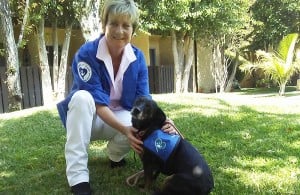What comes with an academically gifted child is not just ease in learning. It also brings an insatiable appetite for knowledge. It also lends itself to sophisticated questions about people, relationships, and the world surrounding them, not to mention an unrelenting drive for excellence. Proud parents hone in early on the exceptional abilities of their young ones. They generally go to great lengths to ensure intellectual passions are fed and nurtured through school, outside enrichment courses, and activities.
The instinct to hyper-attend and nourish the minds of gifted children is both right and necessary. However, moms and dads also want to be mindful that they are not raising one-dimensional children. Physically talented youth can struggle academically because of an overemphasis on physical prowess. Similarly, the social and emotional areas suffer in academically elite children if dialogue and interactions are focused primarily on intellect. From birth, communication is key to maximizing intellectual brilliance. But it also helps balance focus and interactions in a way that allows for the blossoming of a healthy, happy, contributing, and well-rounded member of the community.
Communicating With Infants
Breaking and exceeding intellectual milestones are familiar feats for gifted children. Parents will notice that gifted children possess an aptitude for receptive language even in the early stages of infancy. Babies will react deliberately and consistently to repetitive speech patterns, frequently played songs, and television programs. They also do this with simple questions and comments to let their primary caregivers know they understand. Gifted babies will provide deliberate, as opposed to reflexive, responses. For example, when asked if they want something, a baby will smile and gesture excitedly to indicate that they are receiving and comprehending the communication.
Ongoing verbal interactions with babies with superior receptive language abilities will accelerate learning. It will also bring joy and a closer bond between parents and their children. It is advisable to continue to engage with them in this way as long as the infant is not overwhelmed or distressed by adults’ ongoing verbal interactions.
Parents will notice intellectual outliers defying typical lingual benchmarks as the receptive language grows rapidly. As children grow older, expressive language will likely produce a bountiful vocabulary. This allows for adult-like and articulate inquiries, expressions, and exchanges with others.
Expressive Language and Age-Appropriate Communication
As expressive language grows, so will the desire to learn about all things and people in the immediate and outside environment. Curious minds will want answers to questions occurring in every facet of their day. For instance, questions in the kitchen while mom or dad cook dinner. Or during a family road trip, as they view the scenery from the car window. Perhaps during storytime, in the grocery store, or during a religious service. And, of course, when they see and hear the news on television and in so many other day-to-day occurrences.
Parents may be inclined to respond to their children’s inquiries. Giving young people the desired answers is generally beneficial to the intellectual mind. However, moms and dads want to be mindful that the information they communicate to their children is age-appropriate. The intellectual ability to ask a sophisticated question does not necessarily mean children possess the emotional capacity to process the answer.
For example, parents watching a local news report on television about violent protests occurring in their neighborhood, their gifted child might ask why people are angry and breaking the window of a store. While responding with detailed information on this subject may seem reasonable, this real-life event is troublesome for most adults. In this instance, children need to be protected from it. Truth be told, what children want to know when the outside world is chaotic is that they are safe. They want to be assured they have nothing to worry about. And that mommy or daddy will make sure everything is okay.
Communication and Empathy for Others
Most gifted children are used to being heaped with acknowledgment and praise for their intellectual talents. It comes from parents, other family members, teachers, and even peers. So, it should be no surprise that elevated intellectual self-esteem coincides with this ongoing adoration. Children deserve to feel good about their extraordinary abilities and the accolades that accompany them. However, confidence can veer off a healthy emotional path and quickly become arrogant. Excessive attention and compliments about intellect can turn the desire to express knowledge and information into creating an unflattering platform to show off and brag about intellectual brilliance.
Possessing advanced learning capabilities can give gifted children a false sense of superiority over their peers. This particular quality is off-putting in the social realm. It can also potentially be hurtful to friends and siblings of average or less intellect. Parents’ time and attention to nurturing intellectual talents must be balanced with equal amounts of energy, keeping children grounded in reality and compassion for others. Moms and dads need to make it clear to their offspring that while intellectual achievements are something to be proud of, grades, awards, and special recognition do not equate to superiority over others.
Communicating Empathy for Self
It is not uncommon for gifted children to be goal-setters, naturally motivated, and driven. The rapid ability and ease at which exceptional children learn are conducive to the rise of these desirable qualities. However, along with being extremely ambitious, perfectionist traits are often present. Gifted children are aware that learning comes easily to them. With that knowledge often comes unreasonably high self-imposed expectations. These intense qualities can result in intellectual self-esteem that fluctuates based on extrinsic outcomes like test scoring percentage and class rank instead of appreciating learning and growth.
The perfectionist mentality manifests when gifted children make mistakes on projects and exams and when concepts and subject matter are not grasped immediately. Parents must emphasize that learning will not always come easily, even for their exceptional children, and requires time and patience. Most importantly, children must understand that mistakes and struggles do not equate in any way to intellectual or academic inadequacy.
Good grades, academic certificates, scholarships, and honor roll are part of the rewards that gifted children experience throughout their educational careers. However, their self-esteem should not be shackled to these external prizes or rankings amongst peers. A tiny percentage of individuals are the outright best at a specific skill or subject. Therefore, the measure and growth of self-esteem for even the most gifted child should never be based on comparing one individual to another. If self-esteem only grows based on doing better than everyone else, then a child will never achieve an acceptable level of internal satisfaction with anything less than number one.
Whole Child Communication
Astrophysicists, neuroscientists, surgeons, lawyers, engineers, and world leaders are attractive professions often sought by gifted youth from an early age. Opportunities that will nurture the intellectual talents of exceptional youth need to be constant early on in childhood. However, possessing an advanced intellectual quotient is not a guarantee for achievement in the future. Parents need to ensure that they are raising multifaceted individuals. They can do this by incorporating a mix of physical activities, social engagements, and thoughtful guidance that allows them to grow up to be secure, empathetic, and well-balanced adults primed for optimal success.































